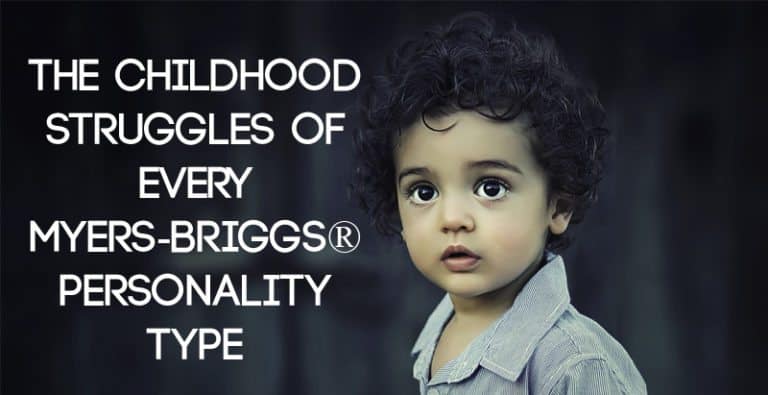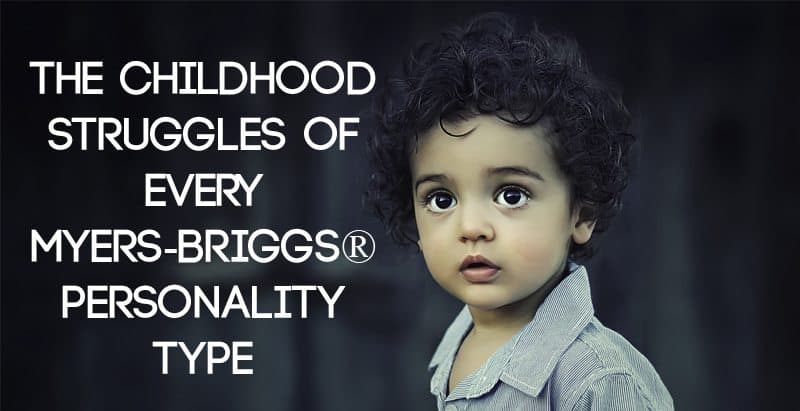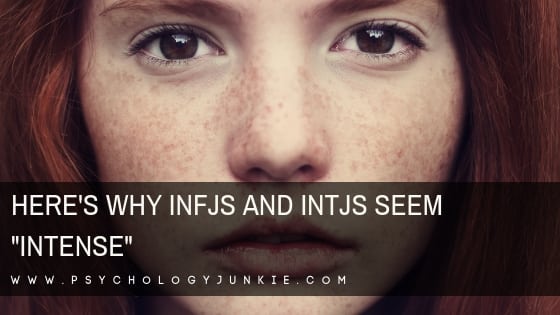Here’s the Social Norm That Confuses You, Based On Your Myers-Briggs® Personality Type
Do you ever wonder how some of the social norms that we follow in our society got there in the first place? You’re not alone! I recently was in a conversation with a variety of personality types about social norms and the ones they found particularly illogical. That got me wondering if this was a “type” thing, or just something specific to those people so I started asking around. Again and again, I noticed certain types bringing up (or agreeing with) the sentiments of others who shared their personality type.
So what’s the totally “normal” thing that confuses you? See if you agree, and if you don’t, let us know what your thoughts are in the comments!

Not sure what your personality type is? Take our new personality questionnaire here. Or you can take the official MBTI® here.
The “Normal” Thing that Confuses Each of the Myers-Briggs® Personality Types
INTJ (The Strategist)
Confusion Point: The idea that silence is “awkward”
Ah, silence—why is it so bad? Why can’t we enjoy it? There seems to be some unspoken rule that when there is a more than a brief moment of stillness, we must frantically chat about the weather, the latest movies, or what we ate for breakfast. Honestly, if given the choice to ramble on about the chance of scattered storms or sit quietly pondering the meaning of life, most INTJs would rather enjoy their silent ruminations.
Find out more about INTJs: 7 Extremely Annoying Challenges INTJs Face On a Regular Basis
INTP (The Prodigy)
Confusion Point: Clapping!
“Ah yes, nothing says ‘job well done’ like smashing our hands together rapidly.” Lots of you have never even contemplated the art of clapping or why we as humans do it. But you can count on an INTP to ask the question and then make you feel absurd for doing it.
INFJ (The Mystic)
Confusion Point: The obsession with celebrities and athletes over community heroes.
We idolize athletes and celebrities, chasing after them for selfies and forking over millions for their latest blockbusters or sports contracts. Meanwhile, teachers, nurses, and firefighters—the unsung heroes who actually shape our communities and save lives—are often left in the shadows, scraping by on far less than what our favorite pop star spent on coffee this morning. It’s as if we collectively agreed that scoring a touchdown is worth more than scoring a child’s future or saving a life.
Discover more about INFJs: 10 Extremely Annoying INFJ Pet Peeves
INFP (The Dreamer)
Confusion Point: People asking “How are you?” without expecting an answer.
To an INFP, the question “How are you?” is often met with a tinge of annoyance rather than excitement. Why in the world do people ask this question when they know they’re not actually interested in an accurate answer? Feigning concern as a social norm makes no sense to them. “Do you really want to know, or is this just a social script?”
Find out more about INFPs: The Top 25 Favorite INFP Movies
ISTJ (The Detective)
Confusion Point: Not going to the movies alone.
“You’re not going to talk to anyone anyway, so why does it matter if you go alone?” ISTJs are all about practicality and efficiency, and this social convention flies in the face of both.
ISTP (The Vigilante)
Confusion Point: Wearing ties.
“Why on earth is this ridiculous piece of fabric seen as a sign of professionalism?” one ISTP wondered. You cover your torso with a shirt, your legs with pants, and your feet with shoes—but then there’s just this overpriced, dangling strip of fabric hanging from your neck. What does it even do? ISTPs need practicality, not a noose of faux sophistication that is wildly uncomfortable.
ISFJ (The Protector)
Confusion Point: Pretending you don’t care about something or someone you REALLY care about
ISFJs scratch their heads at the peculiar human tendency to act aloof when deep down, they’re emotionally invested. “You’re beautiful,” “I love your eyes,” “I like you.” Life’s too short to beat around the bush and pretend you’re “too cool” to be clear. But, alas, in a world where being sincere is often mistaken for desperation, that directness feels more like a leap off a metaphorical cliff than an invitation for coffee.
ISFP (The Virtuoso)
Confusion Point: People can become destitute and be treated horribly for things beyond their control.
ISFPs don’t get why our world touts such virtues as compassion and generosity and then lets people who are mentally ill, abused, or otherwise struggling, wither and grapple without any help. When they see people suffering due to circumstances out of their control, their internal world implodes. “You’re telling me someone lost their house because of medical bills? My heart can’t take this.”
Find out more about ISFPs: 10 Things You Should Never Say to an ISFP
ENFJ (The Mentor)
Confusion Point: Bashing religious beliefs or faith.
ENFJs, while not universally religious, are drawn to spirituality and unity. One thing they hate? People who bash on others’ beliefs. Whether someone finds solace in Sunday service, vibes with the universe during full moons, or holds deep conversations with science, who are we to judge? Save the judgments for bad karaoke nights or those questionable gym selfies!” one ENFJ said.
ENFP (The Visionary)
Confusion Point: Adults not talking to strangers.
ENFPs believe that with collaboration, insight, and empathy, everyone can work together to make the world a better place. To them, not engaging with strangers is like locking away a treasure trove of potential friendships and groundbreaking ideas. “Imagine all the innovations we’re missing out on because people are too scared to say ‘Hi.'”
Find out more about ENFPs: 12 Amazing Fictional ENFP Characters
ENTJ (The Director)
Confusion Point: Charity Walk-a-thons.
“There’s a serious problem in the world, and the best solution is to walk in circles for three hours? How about we actually DO something productive instead?” said one ENTJ I spoke with months ago. To them, there were dozens of “better” options that were more direct and efficient.
ENTP (The Trailblazer)
Confusion Point: “Because it’s always been done that way.”
ENTPs are notorious for questioning everything, which is why they hate the retort: “But we’ve always done it this way.” “Really? Did the cavemen insist on crafting their tools with the same stone for centuries?” Legendary for their devil’s advocate approaches, they’re here to stir the pot, challenge traditions, and remind you that your great-grandmother’s weird cookie recipe doesn’t have to dictate how we bake today.
ESTJ (The Captain)
Confusion Point: The ease of driving tests
“Wanna fly a plane? Here’s a rigorous test. Wanna drive a boat? Same deal. But wanna drive a car 70 miles-per-hour, inches away from other people doing the same thing? Answer a few questions and take a simple test and you’re good!” ESTJs can’t fathom the logic here.
ESTP (The Daredevil)
Confusion Point: Respect your elders.
To an ESTP, respect should be earned, not given freely based on age. “Just because you’re older doesn’t mean you get a free pass. Show me some skills, and then we’ll talk.”
ESFJ (The Caregiver)
Confusion Point: Not giving up your seat for an elderly or pregnant person on public transportation.
It used to be the social norm to give up your seat for an elderly or pregnant person on public transport, but things have changed. Now it’s totally acceptable for a healthy young adult to scroll their phone and ignore the elderly person hanging on for dear life as the bus bumps and jostles from side to side. For the ESFJ, offering your seat is a no-brainer, a simple act of kindness that should be as natural as breathing. Yet, every time they hop on a bus or train, they find themselves playing a game of ‘who’s brave enough to be the decent human today?’
Discover more about ESFJs: 7 Things That ESFJs Experience as Children
ESFP (The Champion)
Confusion Point: Treating children like pets.
ESFPs believe in treating everyone with respect, including kids. “We force kids to do things we’d never ask of adults. Can you imagine telling an adult that they need to ‘give everyone a hug goodbye’ or demand that they play their piano in front of everyone?'” one ENFP stated.
What Do You Think?
Are you also baffled by these social norms? Do you have a different opinion or perspective? Let us and other readers know in the comments!
Discover even more about your personality type in our eBooks, Discovering You: Unlocking the Power of Personality Type, The INFJ – Understanding the Mystic, The INTJ – Understanding the Strategist, and The INFP – Understanding the Dreamer. You can also connect with me via Facebook, Instagram, or Twitter!
Subscribe to Our Newsletter

Want to discover more about personality type? Get the inside scoop with Susan Storm on all things typological, along with special subscriber freebies, and discounts on new eBooks and courses! Join our newsletter today!












Didnt expect that this article would be accurate. I’ve always wondered why we gave Athletes, rock stars, even politicians so much adoration. It’s said don’t meet your heros you’ll be disappointed. I’ve found many people truer to their word. Just common people who deserve that respect so much more than the super stars. AB
Silence is golden. Cinema alone makes perfect sense. The status quo is for the egoistic ones with invested self-interests and not for me.
There are many more social norms that doesn’t make much sense to me.
Everyone should try keeping those lips zipped every once in a while. Silence isn’t awkward unless you make it so.
To the ESTP’s from an INTJ who’s been there–“respecting your elders” is just a nicer way of saying “use good manners and don’t aggravate your elders”. . It has almost nothing to do with “respecting” them. I believe we all agree, “respect” must be earned.
“ESTP (The Daredevil)
Confusion Point: Respect your elders.
To an ESTP, respect should be earned, not given freely based on age.”
Totally true. Same goes for ill-behaved children and their entitled parents. No, it’s not “cute”. And children, unless severely mentally ill, do learn how to behave if they face real consequences. It’s just lenient parents who don’t want to cause a “psychological trauma”, and the result is adults with 0 control of their emotions, those same people tend to trow tantrums, have eating disorders, can’t be on their own and can’t self-regulate, aren’t satisfied with anything, are very immature, and are weak but very cocky. I know a few, it’s a miserable sight.